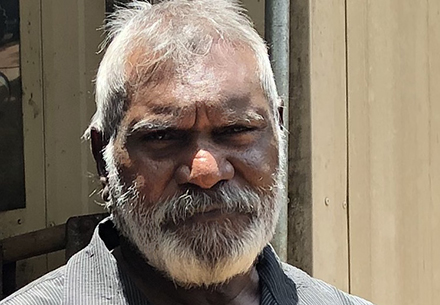The Cooperative Research Centre for Developing Northern Australia (CRCNA)’s latest collaboration is tipped to increase the export value of the Tiwi Islands forestry industry with the development of improved tree species and management practices over the next three years. Source: Timberbiz
Project participants will officially kick off the three-year, $4.6 million Maximising northern tropical forestry project during a live webinar event at 10.30am (ACST), Thursday 2 September 2021.
The project brings together the Tiwi Plantations Corporation (TPC), local community development specialists, commercial tropical forestry experts and researchers to create a new model of forestry for Tiwi.
Chairman of the Tiwi Plantations Corporation Kim Puruntatameri said the project will deliver new options for economic development and employment for the Tiwi community by supporting a shift away from Acacia -based products and lower-value bleach hardwood kraft pulp, to Eucalyptus-based products like those used in higher-value speciality pulp markets for textiles and other bioeconomic products.
“This fundamental shift in the plantation production system will bolster the long-term viability of the Tiwi plantations and provide an integrated socio-economic model for the expansion of the planation forestry estate in the north.
“We’re already seeing productivity gains – close to 100% – in a network of small-scale paired trial sites previously planted on Melville Island”.
“Based on these figures, this is expected to secure a multimillion export market in future years,” he said.
The Northern Territory Minister for Agribusiness and Aquaculture, and Northern Australia and Trade, Nicole Manison, said the Territory Government is supportive of projects which help create long term local jobs.
“We want to increase investment in the Territory and create sustainable, long-term jobs for locals, particularly in Aboriginal communities. This is part of our target to grow the Territory’s economy to $40 billion by 2030, with a focus on growing industries, including agribusiness.
CRCNA Chair Sheriden Morris said the launch of this project during the Developing Northern Australia conference in Darwin, was a great opportunity to highlight the importance of northern forestry as an enabler of economic development for First Nations communities,
“The team have co-designed this work to ensure opportunities for the local workforce to train and gain skills in all facets of the research work, meaning the benefit of this research investment will extend beyond the life of this project,” she said.
Ms Morris said training linkages will align with Charles Darwin University’s Indigenous Community Researcher Program through the Northern Institute.
TPC and the research team will not be wasting any time applying the science within a real-life, commercial setting, taking the data from the field to the lab and back to the field in an iterative, closed loop learning process. This will allow for outputs to be quickly turned into decision support tools to help guide best management practice and an ongoing exchange of information between collaborators.
In addition to technical field work and trials, researchers and community development practitioners will work with Aboriginal and rural communities across Northern Australia to document best practice forestry plantation establishment practices and develop a Northern Forestry Industry Growth Model which will outline new options for economic development and employment on Indigenous-owned lands.
CRCNA Chair Sheriden Morris said the company is proud to support this initiative and to play a role in this transformative project.
Project participants
- Forest and Wood Products Australian Limited as co-funder
- The Trustee for Tiwi Plantations Corporation Trust
- Plantation Management Partners
- Northern Territory Government’s Department of Industry, Tourism and Trade
- Charles Darwin University
- University of Melbourne
- Port Melville
Impact summary
- Research trials will occur within the Tiwi forestry plantation area that has exported 24 shipments of hardwood woodchip, and pine logs to 4 separate customers in China and Japan. The project will continue to export woodchip for the duration of this project.
- Assessment of current E. pellita and hybrids trials on Melville Island indicate potential increase in productivity of close to 100%.
- Research will also provide the scientific basis for the second rotation planting within the Tiwi plantation area.
- This second rotation planting will require investment of over $100 million over 20 years, establish plant nurseries and planting programs that will provide approximately 35 ongoing Tiwi jobs, and provide full-time skilled work for up to 120 Tiwi people over the same period. The Tiwi are seeking third-party investment partners.
Register for the Zoom webinar https://us02web.zoom.us/webinar/register/WN_FmPTPklqT-SIVHqcx8-iLQ






